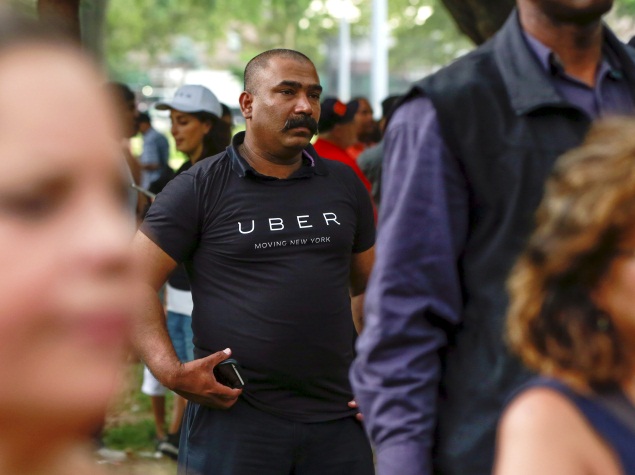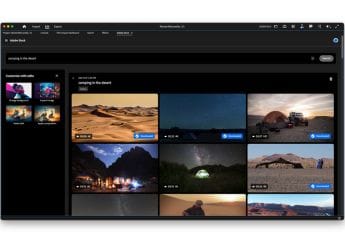Uber Launches Car Leasing Unit, Makes Entry Into Financial Services

The move by Uber, announced as a pilot project on Wednesday, follows the end of its partnership with Banco Santander's US lending unit earlier this year.
Uber announced the initiative but disclosed few financial details, though it said it would offer both new and used cars.
Uber launched a program in November 2013 to arrange manufacturer discounts and lenders for prospective drivers who lacked cars in the hopes it would boost vehicles driving for the app-based service.
At the time, Uber said it hoped to finance 100,000 drivers. Nearly 20,000 drivers have participated in the program so far, Uber said.
(Also see: New York Postpones Vote on Uber Cap, Plans Study on Traffic Impact)
Santander Consumer USA Holdings declined to comment last week on why the Uber leasing deal ended. Uber continues to partner with other lenders for car purchases.
Andrew Chapin, head of vehicle solutions for Uber, this week said Uber wants to provide drivers with more flexibility than traditional leasing companies can offer. Participants in Uber's program can return their vehicle with two weeks notice and "limited additional costs," the company said.
One of the fastest-growing sharing-economy companies, Uber operates in 57 countries, with an estimated value of more than $40 billion (roughly Rs. 2,56,153 crores). It has also tangled with transportation authorities across the globe, along with attorneys seeking to deem Uber drivers employees entitled to benefits.
Uber's entry into auto leasing brings it into contact with yet another set of regulators in a controversial business. The US Consumer Financial Protection Bureau last month said it would oversee non-bank auto lenders who process at least 10,000 loans or leases per year.
The CFPB said it seeks to ensure such leases are marketed accurately, and that debt collectors operate fairly.
Santander has been criticized for its subprime auto loan business. The company disclosed a civil subpoena from the US Department of Justice and other regulatory agencies for documents related to underwriting and securitization of such loans.
Uber's leases will be held on the subsidiary's books during the pilot program, Chapin said, but that will change longer term. The company itself will not be a party to any lease between a driver and the subsidiary, so any change in driver rates would not alter the terms of a lease.
© Thomson Reuters 2015
Catch the latest from the Consumer Electronics Show on Gadgets 360, at our CES 2026 hub.
Related Stories
- Samsung Galaxy Unpacked 2025
- ChatGPT
- Redmi Note 14 Pro+
- iPhone 16
- Apple Vision Pro
- Oneplus 12
- OnePlus Nord CE 3 Lite 5G
- iPhone 13
- Xiaomi 14 Pro
- Oppo Find N3
- Tecno Spark Go (2023)
- Realme V30
- Best Phones Under 25000
- Samsung Galaxy S24 Series
- Cryptocurrency
- iQoo 12
- Samsung Galaxy S24 Ultra
- Giottus
- Samsung Galaxy Z Flip 5
- Apple 'Scary Fast'
- Housefull 5
- GoPro Hero 12 Black Review
- Invincible Season 2
- JioGlass
- HD Ready TV
- Laptop Under 50000
- Smartwatch Under 10000
- Latest Mobile Phones
- Compare Phones
- Red Magic 11 Air
- Honor Magic 8 RSR Porsche Design
- Honor Magic 8 Pro Air
- Infinix Note Edge
- Lava Blaze Duo 3
- Tecno Spark Go 3
- iQOO Z11 Turbo
- OPPO A6c
- Lenovo Yoga Slim 7x (2025)
- Lenovo Yoga Slim 7a
- Lenovo Idea Tab Plus
- Realme Pad 3
- Moto Watch
- Garmin Quatix 8 Pro
- Haier H5E Series
- Acerpure Nitro Z Series 100-inch QLED TV
- Asus ROG Ally
- Nintendo Switch Lite
- Haier 1.6 Ton 5 Star Inverter Split AC (HSU19G-MZAID5BN-INV)
- Haier 1.6 Ton 5 Star Inverter Split AC (HSU19G-MZAIM5BN-INV)







![[Sponsored] Haier C90 OLED TV | Dolby Vision IQ, 144Hz OLED and Google TV in Action](https://www.gadgets360.com/static/mobile/images/spacer.png)









